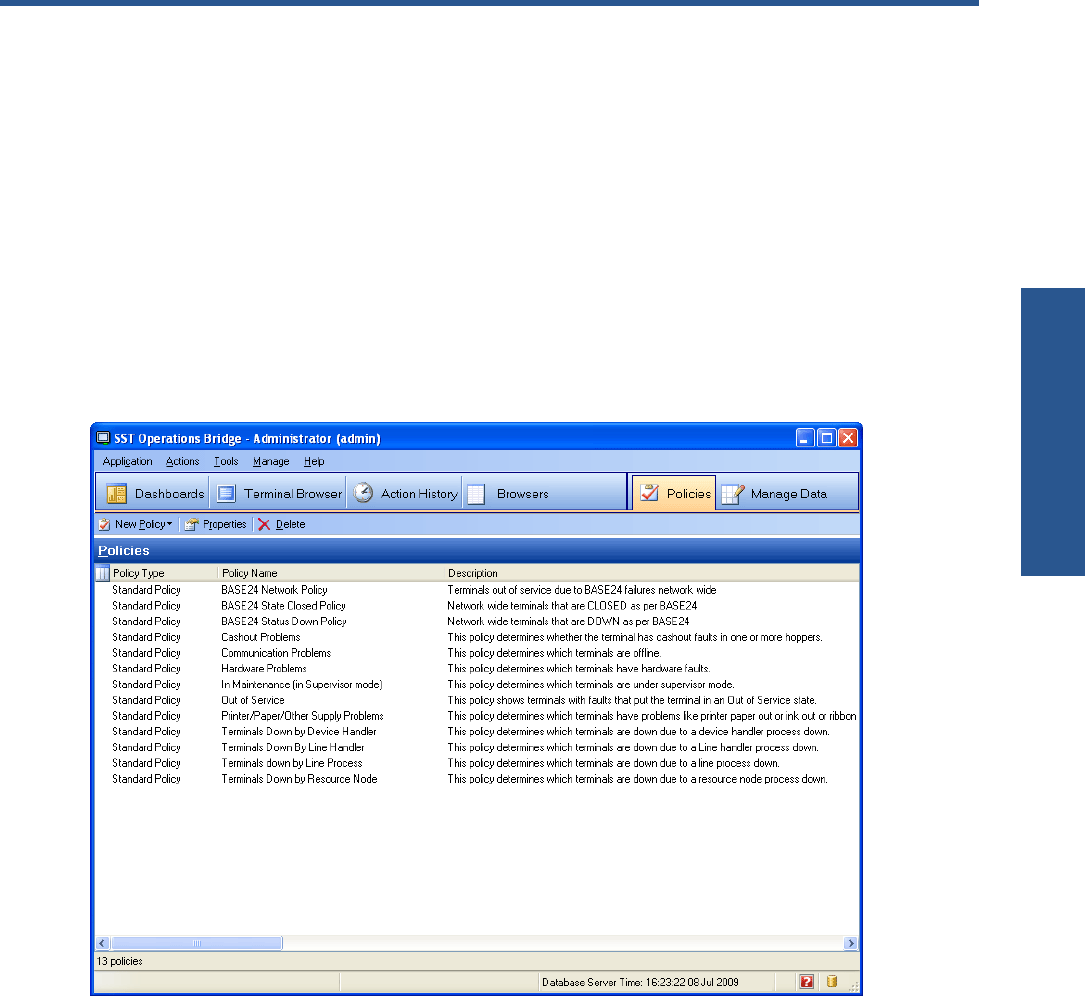SST Operations Bridge Administration Guide, Version 1.1
Table Of Contents
- SST Operations Bridge Administration Guide
- Preface
- Chapter 1: HP SST/OB: Overview
- Chapter 2: Getting Started
- Chapter 3: SST/OB Client Application
- Chapter 4: Application Options
- Chapter 5: User Profiles and Permissions
- Chapter 6: Policies
- Chapter 7: Global Parking and SLA Timers
- Chapter 8: Views
- Chapter 9: Dashboards
- Chapter 10: Terminal Sets
- Chapter 11: Faults and Fault Categories
- Chapter 12: Closure Codes
- Chapter 13: Object State Codes
- Chapter 14: Email Alerts
- Chapter 15: Thresholds and Threshold Alert
- Chapter 16: Commands
- Chapter 17: Terminal Trees
- Chapter 18: Action History
- Chapter 19: Data Management
- Chapter 20: Configuring Hours of Operation
- Appendix A: SST/OB Grid Features
- Appendix B: SST/OB Configuration Client Settings
- Appendix C: SST/OB Import Utility Configuration Parameters
- Document Feedback Form

Policies 45
6 Policies
6-1 Overview
Policies are specialized conditions that can be used to monitor your Terminal environment. Creating a Policy in
SST/OB defines the acceptable operational values for the Terminals. These are the conditions that SST/OB
checks when a Terminal state is monitored. If the conditions defined in a policy evaluate to true, a violation is
said to have occurred and appropriate actions are executed. The actions may include automated e-mail alerts.
Policies can be categorized as:
• Standard Policies
• Fault Policies
• Event Policies
You can access policies using the SST/OB Policies tab page.
Figure 6-1 Policies
Policies










